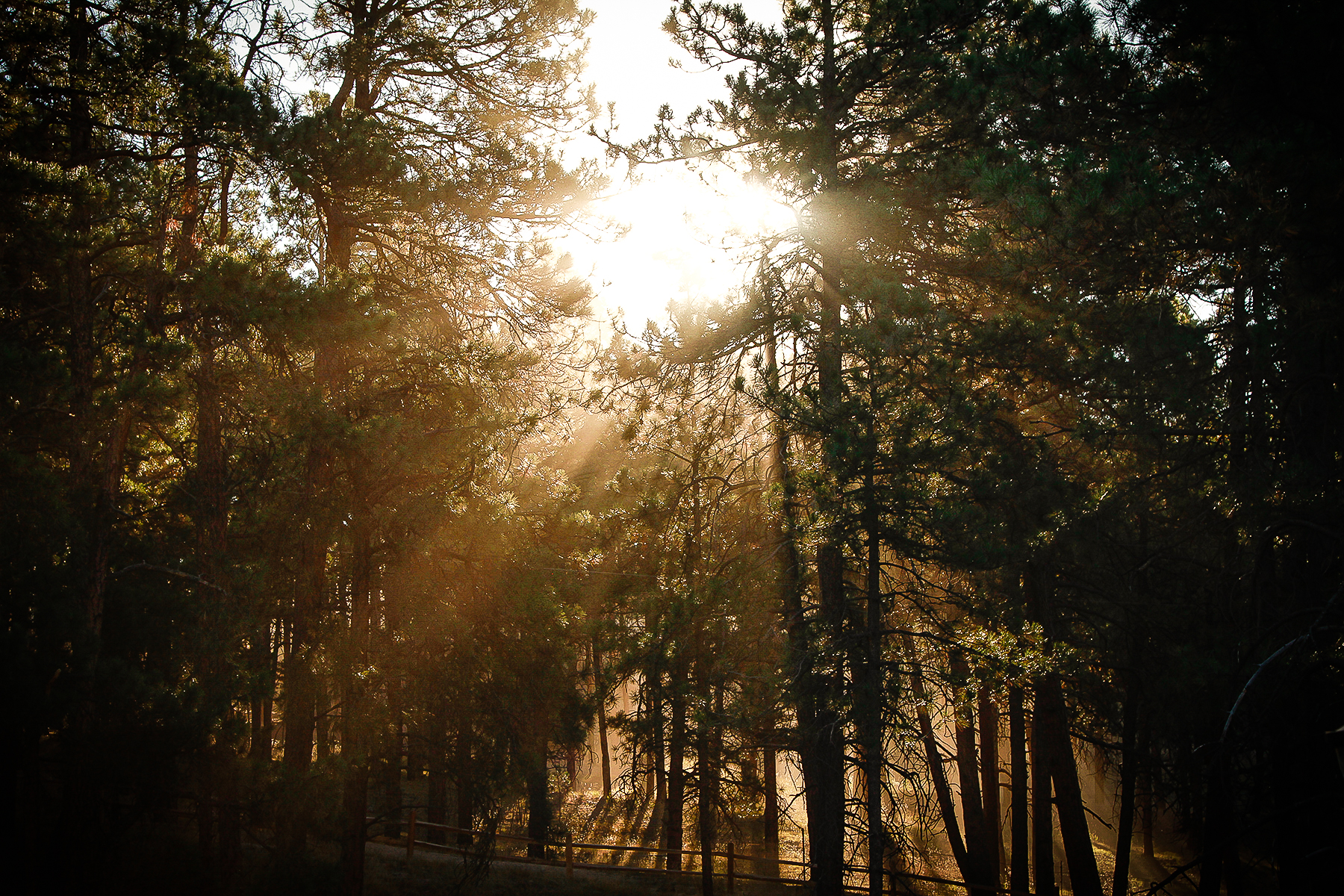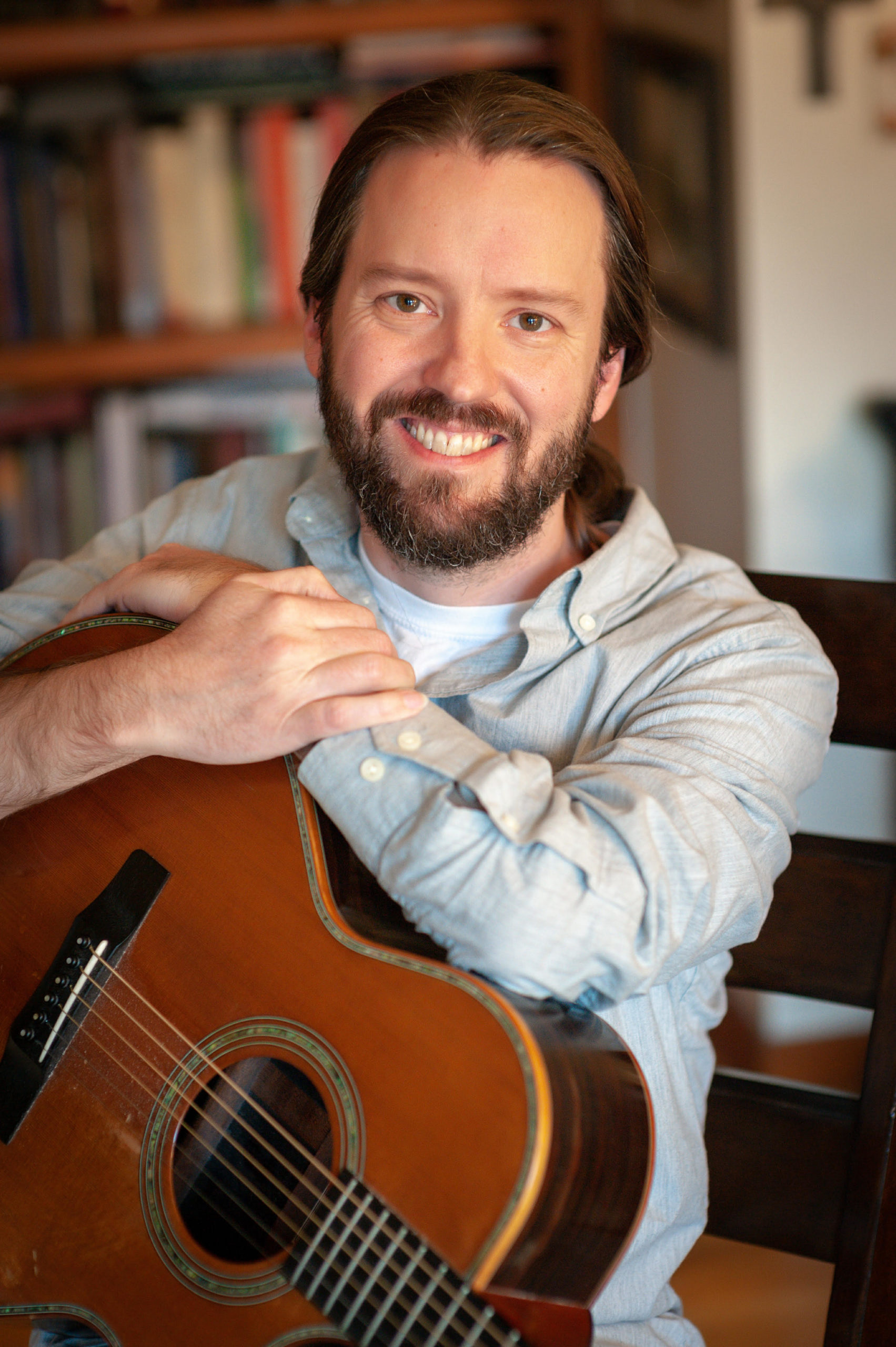Cultivating Calling and Pilgrimage is a meandering column documenting the pilgrimage of faith. It’s an occasional letter arriving in the mail from that shabby, wandering uncle you only see a few times year, describing the odd bits and bobs of books, songs, stories, people and places that have struck his fancy, put a lump in his throat, or kept him putting one foot in front of the other toward the Face of Jesus, that Joy set before us all.
![]()
You can do that?” I said, “I don’t know. I don’t think I can do that.”
“I think you can. Pick just a couple of people, and when you have a really down day, just let them know.”
“Yeah, but what good will that do? This just happens. Nobody can do anything about it. Why would I bother them?”
“You might be surprised. They might not be bothered at all. They might be happy to be with you because they love you.”
A deep breath, then a long downward sigh—really, a groan. Then quiet. “I’m just used to keeping this stuff to myself. I feel sort of obligated to be alone.”
“Obligated to be alone?”
“Yeah, if there’s something going on with me, my job is to keep it to myself, figure it out,” I said, adding, “without bothering anybody.”
My friend nods patiently.
“And I’m fairly good at that.”
“Sure. Given the circumstances of your past, I can totally see how that way of surviving would be normal, even necessary. Back then. But what about now? It may be time to try something new. You’ve got some people in your life who would love to come alongside you. And need is good; it drives us toward connection. Pain needs to go somewhere and be received by someone who cares about us. If we keep ourselves to ourselves, our hearts curl back in on themselves into a vicious loop of loneliness. Our imaginations dry up. Possibilities constrict.”
“I can feel that,” I said.
“Right. That ‘obligation’ you feel—that obligation to be lonely—needs a new imagination, needs some fresh air, needs to experience something it didn’t have the chance to in the past. That means you’ve got to take a risk, be a beginner and try something that feels unnatural to you. Like involving people who love you right there in that place where you feel most obligated to be alone. You might be surprised in a good way.”
That’s an amalgamation of some conversations I’ve had over the last year or so. I’m trying to learn some new things in places where certain assumed patterns from the past have worn me out.
Faulkner said, “The past is never dead. It’s not even past.”[1] For good or ill, who we are didn’t develop in a vacuum, and how the patterns of the past work in the present is a mixed bag.
Our lives emerge from a mutual enfolding in a larger living and shared story. That is a good thing, but it comes with risks. We all haul ourselves around still wearing the contents of our ghostly baggage, like the kids at school you could tell had chain-smoking parents.
Still, we have choices to make. At its best, the past gives us a sense of location, of belonging to or being involved in some glorious field of play that is greater than ourselves, yet in which we’re given a chance to meaningfully respond. I need a lot of encouragement and connection to hold on to that sense of being gathered up into the lives of those around me, and, ultimately, the life of God.
Alone, optimism runs out, all the self-care and self-love in the world runs out, the bootstraps snap; I need a face other than my own to look me in the eyes and speak a blessing. That’s a vulnerable thing to admit, but they say a relational problem can only be healed by way of relationship.
Aggravating, isn’t it? What if the blessing entails a hard truth about something in me I don’t want to face? Well, I need that too. I need people who love me to help me see the places in myself that aren’t working just as much as I need help seeing my beauty or potential. If the mind is a sort of reference library of stories from experience that inwardly form feeling, desiring, and choosing, I may need an interlibrary loan from a friend, if I’m to inherit some new possibilities, if the horizon of my own story is to expand beyond what I can imagine all by myself.
What about the rough parts of our story? Well, if Scripture is any indicator, those need to be honestly explored in the company of listening friends as well if their grip is to be broken. Looking at those stories, we become aware of the material or momentum being handed down to us that we may not be particularly excited about.
But here’s the good news: now that we know, rather than ‘winging it’, we can more deliberately choose how to respond. Learning the origin stories doesn’t excuse them; it offers a traceable rationale, a sort of finger on a thread to lead us through the goblin caves. We can ask the Redeemer to open our imaginations to hope for possibilities that have been missed up till now. For instance, the writer of Hebrews walks us through the mistakes of post-Exodus Israel, reminds us of their failure at the cusp of the promised land and says,
“Look at the ugly parts of our story with me; it doesn’t have to be like that; you can do something different” (Heb. 3:7–4:11).
In the Christian context, our very personhood is defined by interdependence, connectedness, attachment. The stories or relationships in which we are embedded form us at the deepest levels. A person only has meaning in so far as he or she is contextualized by relationship to other persons. I am in a story, a family, a fabric of interdependence whether I like it or not.
Ultimately, I do like it. I like it because it means that as a member of a much larger body, I have access to more than just my own corner of the way things have been. That is a profound grace. It means there are other stories, other people who have done something different. And I can learn.
I remember sitting with some friends, an older couple, in a restaurant. They asked me about a particular sorrow I was carrying. I broke eye contact, picked at my thumbnail. But as soon as I saw this subject was not taboo for them, I realized for the first time that it had been taboo in my experience so far. I looked up. Fred Rogers used to say, “Anything mentionable is manageable.” My fiddly hands relaxed.
As the conversation went so well, I realized that not only could we talk about it, it was wonderful to talk about it! That was a new experience; I had to carve out a whole new cubby in my mind for it because it brought a range of fresh possibilities within reach for me. That old obligation to be alone felt as if it were being relieved of duty. These friends welcomed those parts of me kept in solitary confinement.
They did it, to my surprise, with relative ease. How? Well, they had learned some different patterns (ones they hadn’t grown up with either, come to find out). The Lord had worked with them on tossing the old smoke-soaked clothes on the bonfire to make a clean break from the chain of sad patterns they’d been handed.
That conversation was like being loaned a book from a library better stocked with redemptive experience than my own. You can imagine I’ve got a lot of reading to catch up on, but each page in its turning seems to breathe upon the world a fresh air.
![]()
[1] Faulkner, William. Requiem for a Nun. Vintage.
The featured image, “Sunlight of Grace,” is courtesy of Lancia E. Smith and is used with her glad permission for Cultivating.
Matthew Clark is a singer/songwriter and storyteller from Mississippi. He has recorded several full length albums, including a Bible walk-through called “Bright Came the Word from His Mouth” and “Beautiful Secret Life.” Matthew’s current project, “The Well Trilogy,” consists of 3 full-length album/book combos releasing over 3 years. Each installment is made up of 11 songs and a companion book of 13 essays written by a variety of contributors exploring themes around encountering Jesus, faith-keeping, and the return of Christ. Part One, “Only the Lover Sings” is available both as an album and as a companion book.
Matthew also hosts a weekly podcast, “One Thousand Words – Stories on the Way,” featuring essays reflecting on faith-keeping. A touring musician and speaker, Matthew travels sharing songs and stories in a van called Vandalf.
Leave a Reply
A Field Guide to Cultivating ~ Essentials to Cultivating a Whole Life, Rooted in Christ, and Flourishing in Fellowship
Enjoy our gift to you as our Welcome to Cultivating! Discover the purpose of The Cultivating Project, and how you might find a "What, you too?" experience here with this fellowship of makers!


Add a comment
0 Comments